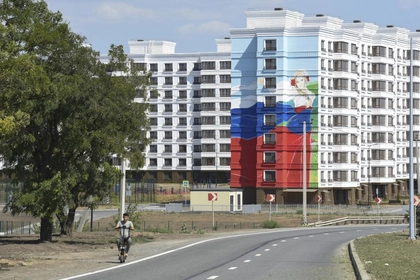Ukrainian President Volodymyr Zelensky signed a law (No. 10265) on Tuesday, June 18, to fulfill one of the conditions required to join the EU’s Roam-Like-at-Home (RLAH) initiative.
“It was adopted to fulfill one of the conditions of the European integration of Ukraine in the field of electronic communications. It ensures that Ukraine joins the common roaming zone between Ukraine and the EU and that Ukrainians receive roaming services in EU countries in the ‘Roaming like at home’ (RLAH) mode,” read the parliament’s press release.
JOIN US ON TELEGRAM
Follow our coverage of the war on the @Kyivpost_official.
The press release also said the new law would “significantly improve” the investment climate for electronic communications businesses.
As reported by Kyiv Post in May, the bill was adopted by Ukraine’s parliament on May 22 and after Zelensky’s signature, it now requires “a positive assessment” from the EU and further negotiations for Ukrainians to enjoy permanent free roaming in the EU.
At present, Ukrainians can access roaming services in the bloc under temporary preferential conditions from European operators following Russia’s 2022 invasion, but joining the initiative would provide permanent access in preferential terms.
Ukraine’s eventual integration into the EU’s unified roaming network would allow Ukrainians to access roaming services in the bloc – as well as Iceland, Liechtenstein and Norway – without additional charges, similar to EU residents at present under the EU’s RLAH initiative.

Ukraine’s Usyk Beats Fury in Heavyweight Championship Rematch
Similarly, the eventual integration would also allow EU citizens to enjoy roaming services in Ukraine with no extra charges.
The initiative includes a fair-use policy where there are no restrictions on call and text across the bloc, but the amount of mobile data under domestic charges is limited to avoid abuses.
When the law was adopted by Ukraine’s parliament in May, Minister of Digital Transformation Mykhailo Federov noted the steps required to progress.
“Next, we must receive a positive assessment of legislative changes from the European side and start negotiations on joining the single roaming space with the EU. After all, our goal is to maintain low tariffs for Ukrainians on a permanent basis even after the victory,” said Federov.
In addition, operators in Ukraine will also need to adjust their tariff regulations to fulfill the EU’s requirements, which would likely require Ukraine to raise the price of mobile internet.
“Tariff regulation will change. Limit tariffs for roaming services will be established, as in the EU. This is necessary so that roaming services are billed as domestic tariffs.
“Operators will need to adapt to the updated legislation, tariff regulations, protection mechanisms for users of roaming services and finalize their systems to meet the requirements,” read a May press release by the Ministry of Digital Transformation.
The regulation also extends to the pricing of mobile services, where “mutual pricing between operators will be determined.”
At present, Ukrainians have access to unlimited 4G data for as little as Hr.410 ($10) per month, where it costs 50 Polish złoty ($13) in neighboring Poland for 80Gb of 5G data.
In Germany, unlimited mobile data can cost upwards of €40 ($43) per month.
Officials from the Ministry of Digital Transformation recently told Kyiv Post that 5G internet will only be available in Ukraine after the war.
On June 18, upon Zelenksy’s signature of the law for it to take effect, a Ukrainian news outlet on Telegram reported that “now Ukrainians in the European Union will have access to national mobile communication tariffs without paying additional funds for four months.”

However, it’s not clear where the four-month figure came from since the law only fulfills one of the EU’s requirements for Ukraine to join the RLAH initiative, and it does not automatically mean Ukraine is joining the initiative after Zelensky’s signature.
At present, Ukrainians enjoy free roaming with a Ukrainian SIM card within the bloc thanks to preferential terms provided by European operators, on which the new law has no bearing.
You can also highlight the text and press Ctrl + Enter






